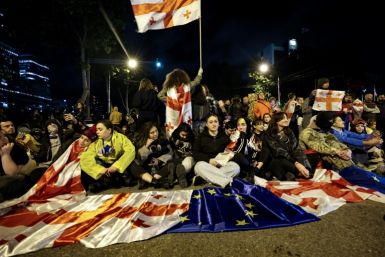Gillard Talks about Sexism on Global Scale
Speaking with Tim Franks of BBC News, former Prime Minister Julia Gillard talked about sexism being not isolated in the Australian culture but an experience common to female leaders across countries all over the world.
"So yes, there were some things about gender our nation needed to work through, that I personally had to work through, but I think it's all part of a journey, where we will over time be treating women and men far more equally in politics," Ms Gillard Told BBC News.
Ms Gillard insisted that "many of the things that happened to me as Australian Prime Minister happened to other women leaders in other parts of the world".
She shared that attending meeting across countries with other female country leaders made her aware that sexism is rampant on a global scale.
"You'll gather and chat about common experiences, where there's never-ending focus on appearance... people are too interested in the handbag rather than what you're saying."
Mr Franks of BBC said that he had interviewed numerous political figures but Ms Gillard's plight was unique for him for he "had never heard public abuse of this nature from people with job titles."
Ms Gillard suffered harsh labels - "Deliberately barren", "non-productive old cow" and was even a subject of an embarrassing parody of menus, "Julia Gillard Kentucky Fried Quail - Small Breasts, Huge Thighs and a Big Red Box".
As for her anger and resentment about how Australian politics had taken a toll on her, she appeared calm and collected now.
She said that with her experience, she is taking something very special with her - that future female Australian prime ministers will already be accepted fairly in the political arena.
"The main thing that I'm taking with me: I'm absolutely confident it will be easier for the next woman Prime Minister, and the next one after that," she said.
The interview happened prior taking her new role as chief fund raiser for Global Partnership for Education (GPE).
GPE is the only multilateral partnership devoted to getting all children in the world's poorest countries into school.






